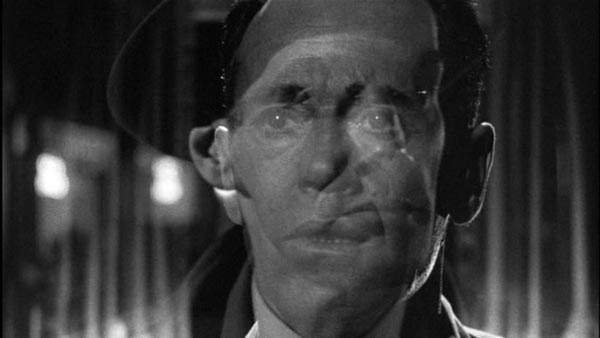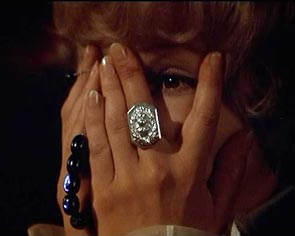Bruk av store forbokstaver i engelske boktitler, filmtitler etc.

I norsk skal titler på bøker, filmer, sanger etc. bare ha stor forbokstav i det første ordet: «Ut og stjæle hester», «Kvinne med bananer», «Frihetens øyeblikk». I engelske titler bør en følge den konvensjon som er rådende i engelskspråklige land.
Engelske titler: Stor forbokstav skal brukes i:
- første og siste ord (alltid)
- substantiver
- verb
- pronomener
- adjektiv
- adverb
- underordnende konjunksjoner
Regelen om at preposisjoner skal ha liten forbokstav, ser ut til å være den som hyppigst blir brutt.
Et godt utgangspunkt er å følge bruken i autoritative oppslagsverker eller nettsteder som The Internet Movie Database og Amazon.com. Ikke bli motløs hvis du ser at bruken i enkelttilfeller kan bryte med reglene.
The Chicago Manual of Style, klassikeren innenfor engelsk typografi, tegnsetting og rettskrivning, sier dette i kapittel 8.167 (15. utgave):
 (1) Always
capitalize the first and last words both in titles and in subtitles and
all other major words (nouns, pronouns, verbs, adjectives, adverbs, and
some conjunctions—but see rule 4). (2) Lowercase
the articles the, a, and an. (3) Lowercase
prepositions, regardless of length, except when they are stressed (through in A
River Runs Through It), are used adverbially or adjectivally (up in Look
Up, down in Look Down, on in The On Button, etc.),
are used as conjunctions (before in Look Before You Leap,
etc.), or are part of a Latin expression used adjectivally or adverbially
(De Facto, In Vitro, etc.). (4) Lowercase the
conjunctions and, but, for, or, nor. (5) Lowercase
the words to and as in any grammatical function, for
simplicity's sake. (6) Lowercase the second part of a
species name, such as lucius in Esox lucius, or the part
of a proper name that would be lowercased in text, such as de or von.
[…] For words that can be used as prepositions, as adverbs, or as
adjectives, consult the dictionary. All the following examples illustrate
rule 1; the numbers in parentheses refer to rules 2–6.
(1) Always
capitalize the first and last words both in titles and in subtitles and
all other major words (nouns, pronouns, verbs, adjectives, adverbs, and
some conjunctions—but see rule 4). (2) Lowercase
the articles the, a, and an. (3) Lowercase
prepositions, regardless of length, except when they are stressed (through in A
River Runs Through It), are used adverbially or adjectivally (up in Look
Up, down in Look Down, on in The On Button, etc.),
are used as conjunctions (before in Look Before You Leap,
etc.), or are part of a Latin expression used adjectivally or adverbially
(De Facto, In Vitro, etc.). (4) Lowercase the
conjunctions and, but, for, or, nor. (5) Lowercase
the words to and as in any grammatical function, for
simplicity's sake. (6) Lowercase the second part of a
species name, such as lucius in Esox lucius, or the part
of a proper name that would be lowercased in text, such as de or von.
[…] For words that can be used as prepositions, as adverbs, or as
adjectives, consult the dictionary. All the following examples illustrate
rule 1; the numbers in parentheses refer to rules 2–6.
- Mnemonics That Work Are Better Than Rules That Don't
- Singing While You Ski
- A Little Learning Is a Dangerous Thing (2)
- Taking Down Names, Spelling Them Out, and Typing Them Up (3, 4)
- Tired but Standing
- The Ski Coach as Anonymous Assistant
- From Homo erectus to Homo sapiens: A Brief History (3, 5, 6)
- Skiing on Glass in the Maine Summer, but Turn On, Tune In, and Enjoy (3)
- Skiing with Fido, but A Good Dog to Ski With
- Voting for the Bond Issue, but Voting For and Against the Bond Issue (3)
- Ten Hectares per Capita, but Landownership and Per Capita Income (3)
- Progress in In Vitro Fertilization (3)
If you are not sure what grammatical function a word is performing (or even if you are), try reading the title aloud: if you would stress the word, capitalize it; if not, lowercase it.

Family Plot
Her er en del eksempler:
All About My Mother
Bell, Book and Candle
Bullets Over Broadway
Come Live with Me
Dial M for Murder
Dressed to Kill
Family Plot
How the West Was Won
I Spit On Your Grave
Juno and the Paycock
Made for Each Other
Mr. Smith Goes to Washington
Next Time We Love
North by Northwest
On Our Merry Way
Once
Upon a Time in the West
Shadow of a Doubt
Stranger Than Paradise
Strangers on a Train
Take Her, She’s Mine
The Greatest Show on Earth
The Last Temptation of Christ
The Man Who Knew Too Much
The Man Who Shot Liberty Valance
The Shop Around the Corner
The Trouble with Harry
Waltzes from Vienna
Wild at Heart / Wild At Heart
You Can’t Take It with You
Om utheving av titler på filmer, bøker osv.: Se sidene om kursiv og anførselstegn.
Egennavn og fellesnavn • Adresser • Om egennavn • Egennavn og fellesnavn • Egennavn + fellesnavn • Fellesnavn + egennavn • Engelske titler • Geografiske navn •
